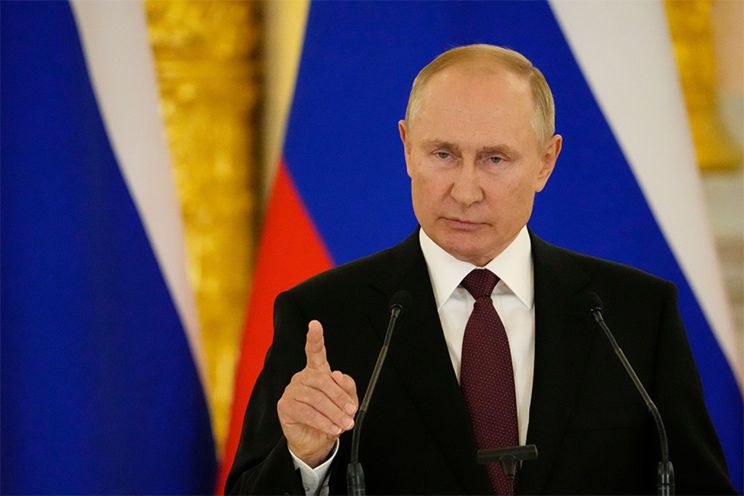The United States denounced Russia on Monday for conducting a “dangerous and irresponsible” missile strike that blew up one of its own satellites, creating a debris cloud that forced the International Space Station’s crew to take evasive action.
Washington wasn’t informed in advance about the test, only the fourth to ever strike a satellite from the ground, and will talk to allies about how to respond, said officials.
The test reignites concerns about the growing space arms race, encompassing everything from the development of satellites capable of shunting others out of orbit to laser weapons.
“Earlier today, the Russian Federation recklessly conducted a destructive satellite test of a direct ascent anti-satellite missile against one of its own satellites,” US State Department spokesman Ned Price said at a briefing.
“The test has so far generated over 1,500 pieces of trackable orbital debris and hundreds of thousands of pieces of smaller orbital debris that now threaten the interests of all nations.”
The crew aboard the orbital outpost — currently four Americans, a German and two Russians — had to take shelter in their return ships, the standard “safe haven” protocol alarm procedure in the event of an emergency that might force evacuation.
The station later returned to a “green” alert level, tweeted Russian space agency Roscosmos, but some of the space junk is likely to persist for years before it re-enters Earth’s atmosphere.
In his strongly-worded prepared remarks, Price said the danger was far from over.
‘Russia’s dangerous and irresponsible behavior jeopardizes the long term sustainability of outer space and clearly demonstrates that Russia’s claims of opposing the weaponization of space are disingenuous and hypocritical,’ he said, adding the US would work with allies on a response.
The Pentagon also briefed reporters, in a sign of the incident’s strategic significance.
‘We watch closely the kinds of capabilities that Russia has seemed to want to develop, which could pose a threat not just to our national security interests, but the security incentives of other spacefaring nations,’ said spokesman John Kirby.
The target of the missile was Cosmos 1408, a 1982 Soviet signals intelligence satellite that has been defunct for several decades, according to space industry analysis company Seradata.
Anti-satellite weapons (ASATs) are high-tech missiles possessed by few nations.
India was the last to carry out a test on a target in 2019, creating hundreds of pieces of “space junk” strongly criticized by other powers, including the United States.
The United States shot down a satellite in 2008 in response to China demonstrating a similar knockout in 2007.
Jonathan McDowell, a Harvard astronomer and astrophysicist, told AFP such tests amounted to “saber rattling,” adding: “The feeling among people in the space industry is that we have way too much debris up there already — to deliberately generate more is just inexcusable.”
The first objects from the debris cloud should start to enter the atmosphere within a few months, but it could be up to 10 years before the cloud clears up entirely, he said.
AFRICA TODAY NEWS, NEW YORK

